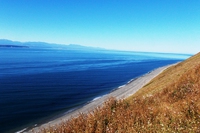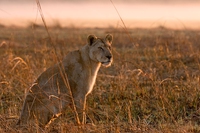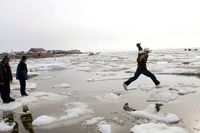
The eastern lowland gorilla isn’t doing well. It’s now critically endangered
A causa della caccia e della guerra civile in Congo questa specie è ora classificata “in pericolo critico” dalla Lista rossa della Iucn.
A causa della caccia e della guerra civile in Congo questa specie è ora classificata “in pericolo critico” dalla Lista rossa della Iucn.
The Khan Younis zoo in Gaza, where few animals lived in dreadful conditions, is now effectively closed. Now the survivors are off to a better life.
Home to breathtaking views of the Cascade and Olympic Mountains and nestled between the waters of the Puget Sound, Ebey’s National Historical Reserve, located on Whidbey Island in the US state of Washington, is a thriving rural community, with a history of exploration and settlement. Originally populated by the Lower Skagit Native American tribe, land use has remained
Le due nazioni hanno consegnato alle Nazioni Unite i documenti per la ratifica dell’Accordo di Parigi. Che, tuttavia, non può ancora entrare in vigore.
This happened in South Carolina, where millions of bees have died due to massive use of an insecticide used against mosquitoes.
The increasing demand for avocado in the United States and Europe is contributing to deforestation in the Mexican state of Michoacán.
Rio’s water network has been privatised to fund the Olympic Games. According to many, this is a political move.
The Zambian government has put in place new plans with regards to a hunting ban concerning big cats in order to regulate wildlife populations. Big cats are found in all of the country’s national parks, but their numbers are depleting significantly. According to estimates, the country has between 2,502 and 4,668 lions. Too few big cats “The
The inhabitants of Shishmaref, a small village in the heart of Alaska, have decided to relocate their town due to rising sea levels.
The connection between pesticides and massive die-offs of bees has been confirmed. “Our results show that neonicotinoids are harmful to wild bees”.








